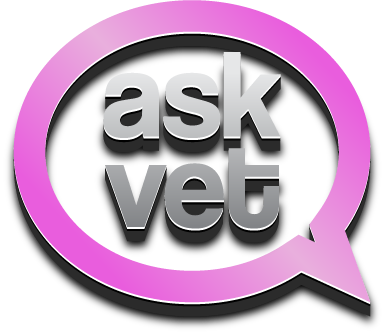Pre Operation Advice
Dogs, Cats & Ferrets
- Please starve from 8pm the evening before their procedure. An empty stomach is critical for a safe anaesthetic/sedation.
- Water may be left down for them overnight, they are allowed access to water in the morning too
- Keep cats locked indoors with a litter tray the evening prior to their operation. Cats need to be kept indoors to ensure that they do not hunt or obtain food from elsewhere overnight.
- Bring cats and other small animals in a secure carrier and make sure that dogs are secure on a lead to avoid them escaping.
- Please allow dogs to go toilet in the morning before arriving and try not to get their coat too wet or dirty.
- If your pet is likely to need any regular medication or special diet food whilst with us then please provide us with this in the morning when dropping them off with us.

Rabbits & Other Small Animals
- Food should be available at all times to herbivores such as rabbits and guinea pigs. The stomach and intestines should be kept moving regularly to keep the animal healthy. Smaller animals also have a very high metabolic rate and should still have access to food.
- Please bring in their normal food if possible to help encourage them to eat as soon as possible after surgery.
- Avoid your pet becoming cold prior to anaesthesia, if a cold night is expected prior to their procedure day please keep indoors in the warm.
- Paper bedding may be required following any surgery to prevent irritating the wound. Depending on the weather, if they dwell outside they may need to be kept indoors in the warm on the evening of their procedure.

General instructions

- Drop off times for surgery are between 8am-9am unless a different time has been agreed previously with a member of staff.
- If your pet has been unwell or not been starved please make staff aware prior to anaesthesia.
- Please be aware a consent form will need to be signed by law upon arrival by an owner (or someone acting on behalf of the owner) and must be over 18 years of age.
- It is important to leave us a contact number we can reach you on at all times during the day so please inform us if your contact details have changed. This is especially important whilst your pet is under our care.
Post Operation Advice

Resting & Exercise
Resting is essential following an operation. Walking dogs should be restricted to short lead walks for at least 7 days. It is important to restrict jumping and playing as too much activity can cause the surgical site to open up or become swollen. You should make sure your pet avoids going up and down any stairs, this may mean keeping cats confined to one room and keep dogs on a lead. We also don’t want to risk the surgical site getting muddy!
Incision
If your pet has an incision from surgery make a note of its appearance, this way you can monitor for any abnormal changes. The wound needs to be checked (ideally at least twice daily) for any bleeding, discharge or swelling. A small number of symptoms such as these may be normal after the operation but any concerns such as redness, bad odour, excessive bleeding, discharge or swelling, then please contact us for advice.

Arriving home & Handling
Your pet will require their own space away from other pets and young children. They may be irritable but there is no need to worry, as this is only a temporary side affect of the anaesthetic. Handle your pet as little as possible, they may be in pain and need some time alone to recuperate in a quiet environment. Take care if you need to pick them up for any reason.
Post op checks:
We will book in your pet for post op checks, which will be free of charge. They are not always necessary and we will advise you if your pet doesn’t need one, however, you are welcome to book a post-op appointment if you have any concerns.

Preventing Interference - "The Cone of Shame"
A buster collar must be worn if instructed to do so by the vet or nurse, this is very important to prevent interference. It may be that when you are around your pet they behave themselves because they are distracted but anytime they are unsupervised a collar must be worn to prevent them from chewing or licking their surgical wound. This can cause infection or they can even pull their stitches out which can sometimes mean another sedation or anaesthetic.
Feeding
We will let you know if your pet has eaten anything whilst under our care. Generally a bland, easily digestible food is recommended, such as Specific intensive support, (this is what we like to offer inpatients), plain boiled chicken or white fish. We recommend feeding half the normal serving of food in the evening when your pet comes home. Ensure that fresh water is available at all times. Please keep in mind that your pet may not be interested in food that evening but their appetite should return to normal the following day.
.jpg)
Medication
You may be given medication such as pain relief or antibiotics, please ensure the correct dose is given at the correct time, and that the course of medication is completed. Animals, like people, have different pain thresholds, and different species of animals show pain in different ways. For example, dogs may become vocal and cry or whimper, whereas small pets such as rabbits may become quiet, lethargic and stop eating. Make sure you know what to watch out for and contact us if concerned. Your pet will be given sufficient pain relief on the day to ensure they are comfortable and further medication will be prescribed to manage any pain at home.













